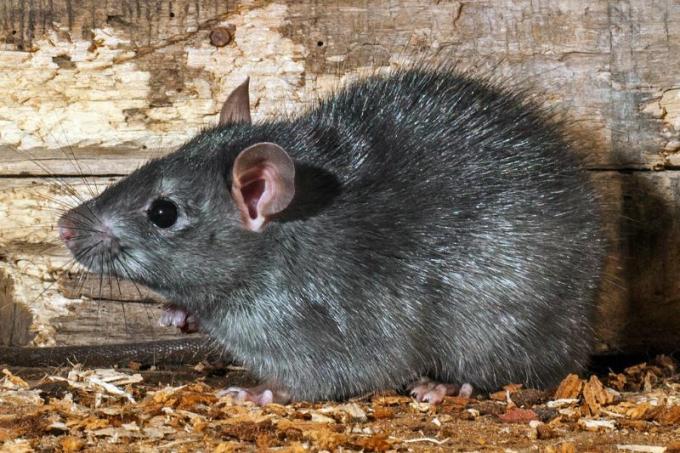
Rats on your own property are not only unappetizing. The rodents can transmit diseases and destroy supplies. But can you just destroy a rat hole like that? Does that even make sense? We clarify.
In a nutshell
- Rat dens recognizable at entrances and exits and traces of faeces
- Rats not protected as health pests
- Construction difficult to destroy
- rats hard to get rid of
- Report infestation and consult a specialist
Table of Contents
- Recognize Rat Den
- legal situation
- fight rats
- alternatives
- frequently asked Questions
Recognize Rat Den
Depending on where the rats are, the rat burrow is not actually a structure. Instead, it can be, for example, a large number of subterranean passages, of which only the entrances and exits are visible. In buildings it is different. There, a shelter can be made of paper or cardboard. Signs of a rat hole include:
- urine and traces of feces
- rats running around
- Sounds
- strong smell of ammonia
legal situation
Basically, all mammals in Germany are protected by the Federal Species Protection Ordinance and may not be caught, killed or disturbed, this also applies to their burrows and nests. However, Appendix 1 regulates which animals are exempt from this. As a health hazard (according to
§2 para. 12 of the Infection Protection Act) also include the brown rat (Rattus norvegicus) and the house rat (Rattus rattus) and can therefore be fought.
A notice: Although the black rat is on the list of endangered species, it is a harmful rodent that is being fought.
fight rats
Destroying the rat burrow sounds like an easy solution, but it's not. This is due to the way rats are built. Finding and successfully destroying all the tunnels in the garden is almost impossible, and they can always build new nests there. It is best to deprive the rodents of all possible materials in advance in order to create a burrow. Things are a little different in buildings. If the rat's nest is there, the following may help:
- clear up clutter
- Safely store or remove anything edible or animal feed
- Remove and discard any nesting material (wool, fabric, paper, cardboard)
- Close loopholes securely
The rat den is inevitably destroyed as well. You should think in advance about what should happen, for example, if baby rats are found during clean-up work.
A notice: Always wear protective clothing, including a respirator, when handling rat areas.
alternatives

In the garden in particular, it is much easier to drive rats away than to destroy their burrow. There are different possibilities for this. It makes sense to try several of them. Rats are very intelligent animals, they easily adapt to new circumstances and perceive them as harmless.
- Odors: chili, cayenne, vinegar, clove oil, turpentine
- Disturbances: frequent visits to the rat burrow, filling up holes or breaking down corridors
- Traps: Live or dead traps
- Prevention: don't leave anything eatable lying around, secure compost and rubbish bins
A notice: Unfortunately, there is no such thing as a 100% guarantee of getting rid of rats with these remedies. In such cases, you should definitely contact a professional pest controller.
frequently asked Questions
Since rats are vermin, they must be reported. However, the nature of the exact reporting may vary from state to state. In some cases it is only necessary to inform the land or building owner, who is then responsible for reporting it to the relevant authorities. These must then according to § 17 of the Infection Protection Act take or initiate the necessary measures to control the animals.
Poison baits may be used, but they are dangerous and require a certain level of expertise. In addition, private individuals may only spread certain poisons.
These include various predators and birds. For example: dogs, cats, martens, owls, buzzards. Dogs or cats on the property can therefore possibly have a preventive effect and let rats move on.



